By Major General Michael Reynolds
One of the foremost German characters in the Battle of the Bulge was Obersturmbannführer (Lieutenant Colonel) Joachim Peiper, the notorious Waffen-SS commander of the strongest armored Kampfgruppe (KG) of the 1st SS Panzer Division, Leibstandarte SS Adolf Hitler (LSSAH). It was his KG of 117 tanks, some 700 other vehicles, and nearly 5,000 men that Hitler had intended should reach the Meuse River first, but he failed and, after 10 days of intense fighting, was forced to escape through American lines with no heavy equipment and only 800 men left.
Even so, Peiper received swords to his Knight’s Cross for his part in his beloved Führer’s last great offensive in the west. After the war he was labeled “GI Enemy Number One” for his alleged part in the Malmedy Massacre of American prisoners, and to this day he is remembered by most Americans, and certainly by all Bulge veterans, as a condemned war criminal whose murder in France in 1976 is seen as poetic justice for the man they believe cheated the hangman’s noose in 1946. To his German comrades, however, his murder made him the last of the fallen—the last casualty of the famous unit in which he had served for nearly 11 years; and to neo-Nazis and to those with Fascist and far right tendencies he has become a hero whose memory is revered.
Why Joachim Peiper Was Sentenced to Death
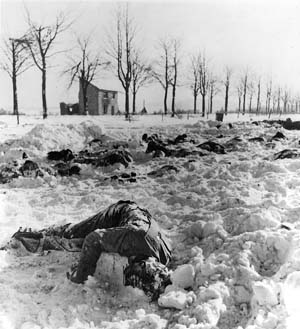 On July 16, 1946, at the former concentration camp at Dachau in Bavaria, Joachim Peiper was sentenced to death by hanging for his part in the deaths of 71 surrendered American soldiers at a crossroads near Malmedy, Belgium, on December 17, 1944. The following day he was moved to the fortress at Landsberg—the same prison where Adolf Hitler had been imprisoned in 1925 and had written Mein Kampf.
On July 16, 1946, at the former concentration camp at Dachau in Bavaria, Joachim Peiper was sentenced to death by hanging for his part in the deaths of 71 surrendered American soldiers at a crossroads near Malmedy, Belgium, on December 17, 1944. The following day he was moved to the fortress at Landsberg—the same prison where Adolf Hitler had been imprisoned in 1925 and had written Mein Kampf.
What happened to this charismatic, if blemished, soldier after his release? Peiper’s parole, ordered by the U.S. commander in chief in West Germany, General H.I. Hodes, was to last until May 21, 1980, and he was to be restricted to the Stuttgart area. He was required to report to his American parole officer, Paul J. Gernert, on the 1st and 15th of each month. His wife, Sigurd, and his three children had remained in their house in Rottach am Tegernsee for the first part of Peiper’s imprisonment in Landsberg, but in November 1955 she moved to Sinsheim in Baden-Württemberg to be closer to him. Until she could move again to the Stuttgart area, Peiper was allowed to visit his family only on weekends and holidays and by the most direct route.
While in Landsberg, Joachim Peiper had earned an interpreter’s diploma in English and had worked in the prison garden and the motor pool and had done some book binding; but in real terms, apart from his knowledge of English, he had no qualifications for civilian employment. His German parole supervisor was a Dr. Theodor Knapp, and his sponsor was Alfred de Maight, the personnel chief of the Porsche Motor Company—at least he had one useful contact and, not surprisingly, he was soon given a job as a clerk in the vehicle assembly and construction office of the company in Zuffenhausen. His first postwar home was as a tenant of a Dr. Hartmann in Klagenfurtstrasse 4, Stuttgart.
A Bitter, Disillusioned Old Man
By 1956 Peiper was a bitter and disillusioned man. He had witnessed the collapse of his whole world, the Third Reich, and in particular the “family” to which he had given his adult life: the Leibstandarte Adolf Hitler. The motto of the Leibstandarte had been “My honor is my loyalty,” and yet this loyalty, which had sustained him and his comrades through nearly six years of fighting, had finally collapsed at the U.S. Interrogation Center at Schwabisch Hall —even his former adjutant had testified against him.
In 1948 Peiper said, “From this moment on everything was a matter of indifference to me. My confidence in our comradeship was broken and I felt only physical disgust against my Adjutant.”
Working for Porsche & Volkswagen
Peiper was released from parole on June 21, 1958, and three years later his obvious talents were recognized when Ferry Porsche, the head of the company, appointed him company secretary. He was the first nonfamily member to get the job, but this promotion brought Peiper to the attention of the powerful union, IG Metall. Ferry Porsche was told that while the union could tolerate a former condemned war criminal as a clerk, it would not accept Peiper as part of the management and would start an adverse publicity campaign if he was confirmed in the position. Porsche had little option other than to cancel the appointment. Peiper threatened to sue the company but eventually settled for six months’ salary as compensation. But worse news was to come. The union made it clear that he would be similarly hounded out of all other companies in which they had workers.
Peiper then became an independent sales promoter, first for a Volkswagen dealer in Reutlingen and later in the same capacity in Offenburg and Freiburg. He also did some sales promotion work for a carpentry firm in Offenburg. By April 1967, he was back in Stuttgart, living at Schnellbachstrasse 32, but doing the same work. In a prophetic interview with a French writer in the same year he made his feelings clear:
“I was a Nazi and I remain one…. The Germany of today is no longer a great nation, it has become a province of Europe. That is why, at the first opportunity, I shall settle elsewhere, in France no doubt. I don’t particularly care for Frenchmen, but I love France. Of all things, the materialism of my compatriots causes me pain.”
New Court Hearings in 1968
On December 11, 1968, Peiper and two of his former officers were accused in a German court of killing Italian civilians in 1943. The Italian authorities and nine plaintiffs brought the case from a small town in northern Italy called Boves. Peiper’s unit had been stationed in the area after taking part in the disarming of the Italian Army in August 1943, and the accusations stemmed from an incident the following November when two of his NCOs had been kidnapped in the town, allegedly by Italian soldiers.
When their company commander radioed that he had been attacked by superior forces, Peiper reacted characteristically by leading the rest of his battalion to the rescue. On arrival he shelled the town with 150mm guns, and this had the required effect. Peiper got his men back, but 34 Italians died in the process. The court received depositions from 17 Italians and 126 former members of his battalion and ruled in February 1969 that there was insufficient evidence for formal charges to be laid.
Moving to Traves
During the winter of 1970-1971, Joachim Peiper moved to a small house he and his wife had had built on their land by the Saône River in Traves. The French authorities, who had full knowledge of his identity and background, granted him a residence permit on April 27, 1972, which was initially valid until February 27, 1977.
The Peipers were not well off, but their children were grown up and had left home and they could live quite well, if quietly, at Le Renfort (The Reinforcement) alongside the other 280 inhabitants of Traves. The house was roughly 400 meters from the edge of the village, and their nearest neighbor was about 250 meters farther west. The owner was a former Leibstandarte artillery captain named Erwin Ketelhut.
Le Renfort was built on a high bank above the river and lay well back from the country road leading into the village. It was a modest three-bedroom house with vestibule, cloakroom, kitchen, living room, and study on the main floor and a utility room and bathroom on the lower ground floor. There was a terrace along the side of the house and a veranda at one end, next to the study. High trees gave it seclusion, and a barbed wire fence separated Peiper’s land from a meadow that lay between it and the village road. At this time his son, Heinrich, was a solicitor in Frankfurt, daughter Elke, a professor in Munich, while his youngest daughter, Silke, was resident in Hamburg.
Joachim Peiper Discovered By the Locals
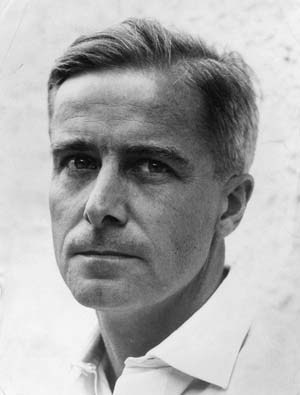 Although the Peipers kept to themselves, the few contacts they did have in the village are said to have been friendly—at least until the “hate campaign” started in June 1976.
Although the Peipers kept to themselves, the few contacts they did have in the village are said to have been friendly—at least until the “hate campaign” started in June 1976.
On June 21, leaflets were distributed throughout Traves: “People of Traves, a war criminal, SS Peiper is amongst us!” The text went on to call for his expulsion from France, and the following day the national newspaper l’Humanité printed an article on the same lines. Within a few days most of the French and even some international newspapers joined in, and walls and road surfaces in the area were daubed with swastikas, SS runes, and Peiper’s name. In a carefully orchestrated campaign the Communists claimed that in exposing Peiper’s background to the public they were merely expressing the indignation of the population.
Peiper complained to the French police in Vesoul, and they agreed to provide a guard—but in the daytime only. The West German embassy in Paris had nothing to offer but sympathy and advised him to leave the area, at least temporarily.
On June 23, Peiper was interviewed by a French newspaper reporter. When asked about his Nazi past he replied, “That is a ridiculous question…. I was young and idealistic against Bolshevism. I do not understand why people keep dragging up history. As the Italians say, ‘The coffee is cold.’ Today, it is time for reconciliation in Europe.”
And when asked about his association with the SS, he said, “I was not political. I was never a member of the Nazi party. I was a soldier.”
Threats of Arson Before the Fire
On July 13, Peiper received letters and telephone calls telling him his house and dogs would be burned. There was no direct threat to kill him. Sigurd left the same day in the BMW. It is not clear exactly where she went. Arndt Fischer told the author in 1991 that she had a long-standing arrangement to visit an old friend in Strasbourg and that Peiper had encouraged her to keep the appointment. This may well be true, or she may possibly have gone to her son in Frankfurt. She and Heinrich appeared together in Vesoul on July 15, 1976—the day after Joachim Peiper’s death.
After his wife left, Peiper wrote two letters. In the first, to Rudolf Lehmann, the former chief of staff of the 1st SS Panzer Division and a personal friend, he said that his “quiet haven” had become “an entrenched camp” and that he would “move in the autumn if the Communists allow me to wait until then.” The second was to another old friend, Dr. Ernst Klink, of Waldkirch near Freiburg. Klink was another former Waffen-SS officer who, after the war, had worked in the federal military archives in Freiburg.
Peiper wrote that, owing to “uncertainties in Franco-German relations,” he had stopped writing his book and was therefore sending him the existing material. He went on to say that if Bettina Wieselmann came to see him, he should give her every assistance.
Later the same day, Peiper and Ketelhut discussed the overall situation. Peiper said he was not particularly worried because he did not believe the people making the threats were particularly courageous; and anyway he had a Colt .38 revolver and a .22 rifle with which to defend himself. Ketelhut offered to lend him a Remington 12-bore shotgun, which he accepted, and to keep an eye on the area that evening from his balcony at the mill. He took the precaution of equipping himself with two loaded rifles.
Sirens on Bastille Day
At about 11:30 pm, Ketelhut, having heard and seen nothing suspicious, took a weak sleeping pill and went to bed. One and a half hours later, on Bastille Day 1976, he was awakened by the sound of the village siren and from his balcony he saw flames leaping from Peiper’s house.
When the local fire brigade was called out in the early hours of July 14, their pump was found to be unserviceable; the 11 firemen were questioned by the police but the pump was found to be genuinely defective and there were no traces of sabotage.
After the fire was eventually extinguished, the police discovered a badly burned body in the remains of the study. Due to the intense heat generated by the fire, it had shrunk to a length of about 60 cm and was barely recognizable as that of a human being. When Ketelhut was shown the body at 5 am the following day, he said: “It is him but he is miniaturized.”
Under the body the police found a fire-damaged .22 rifle with an expended case in the chamber and nearby a Colt .38 revolver with five expended rounds in the cylinder. A further 13 unexpended .38-caliber rounds were found in the same room. Out on the terrace they discovered three expended shotgun cartridges, a Remington 12-bore shotgun with an open, empty breech, and a strong smell of powder.
An examination of the garden revealed traces of shot near an oak tree about 10 meters from the house and a .38-caliber bullet at about the same distance from the veranda, between a pine tree and the kennel.
Both Peiper’s dogs had been wounded, and there were four 6.35mm bullets in the bloodstained kennel. A 6.35mm pistol is a very small weapon indeed, usually carried by ladies for self-protection.
Forensics Inconclusive
It appeared that the victim had tried to save some clothes belonging to Frau Peiper by throwing them out of the house, and in front of the veranda the police discovered a pair of binoculars and some personal papers, including Peiper’s last letter to his wife. Peiper’s watch, which was found on the body, had stopped at 1 am and a clock in the house at 1:07.
Two experts in arson, one from Lyon and the other from Marseilles, investigated the fire the day after the attack. They judged that it had started at the back of the house, the side nearest the road, and taken hold very quickly due to the wooden floors and ceilings. Three different sources of the fire were discovered, and one poorly made Molotov cocktail was found outside the house and the remains of three more in the study.
The subsequent criminal investigation was carried out by the Police Judiciaire of Dijon. The principal police commissioner was Monsieur Guichaux, and the chief inspector was named Casseboix. It was found that the wire fence between the garden and the meadow had been cut with wirecutters, and from the projected trajectories of the various weapons fired by the victim the police concluded that he had attempted to dissuade his attackers from firebombing his house by firing all three weapons at them. There was no evidence of any weapons being fired toward the house, and therefore no evidence of any direct attempt to kill the victim. There had been no attempt to cut the telephone line to the house.
In summary, it would seem that after firing the shotgun from the terrace to dissuade his attackers, Peiper reentered the house in order to save important personal papers and some of Sigurd’s clothes. Having thrown these out of a bedroom window and the study door, he then continued to defend himself and his property by firing his other weapons but was overcome by smoke and died in the fire.
Joachim Peiper’s Body Destroyed
Not surprisingly, Sigurd Peiper wanted her husband buried in Germany, but before a German burial certificate could be issued a German autopsy had to be carried out. However, Arndt Fischer told the author in June 1991 that when the body arrived from France the head was missing. It appeared later but had been sliced up and the only tooth still present was split. The German autopsy was performed by Professor Spann of the Institute for Rechtsmedizin of the University of Munich, and Peiper’s body was finally laid to rest in the cemetery of St. Anna’s church at Schondorf am Ammersee in Bavaria, along with those of his father, mother, and two brothers.
Extraordinary scenes followed the events of July 14, 1976. After a claim the following day by an unknown group calling itself The Avengers, the London Times thundered: “Avengers kill SS colonel in France,” and three days later another prominent British newspaper reported: “Cars full of sightseers converged this weekend on the small village of Traves … to get a glimpse of the burnt out house of Joachim Peiper, the former SS colonel who perhaps is not dead.”
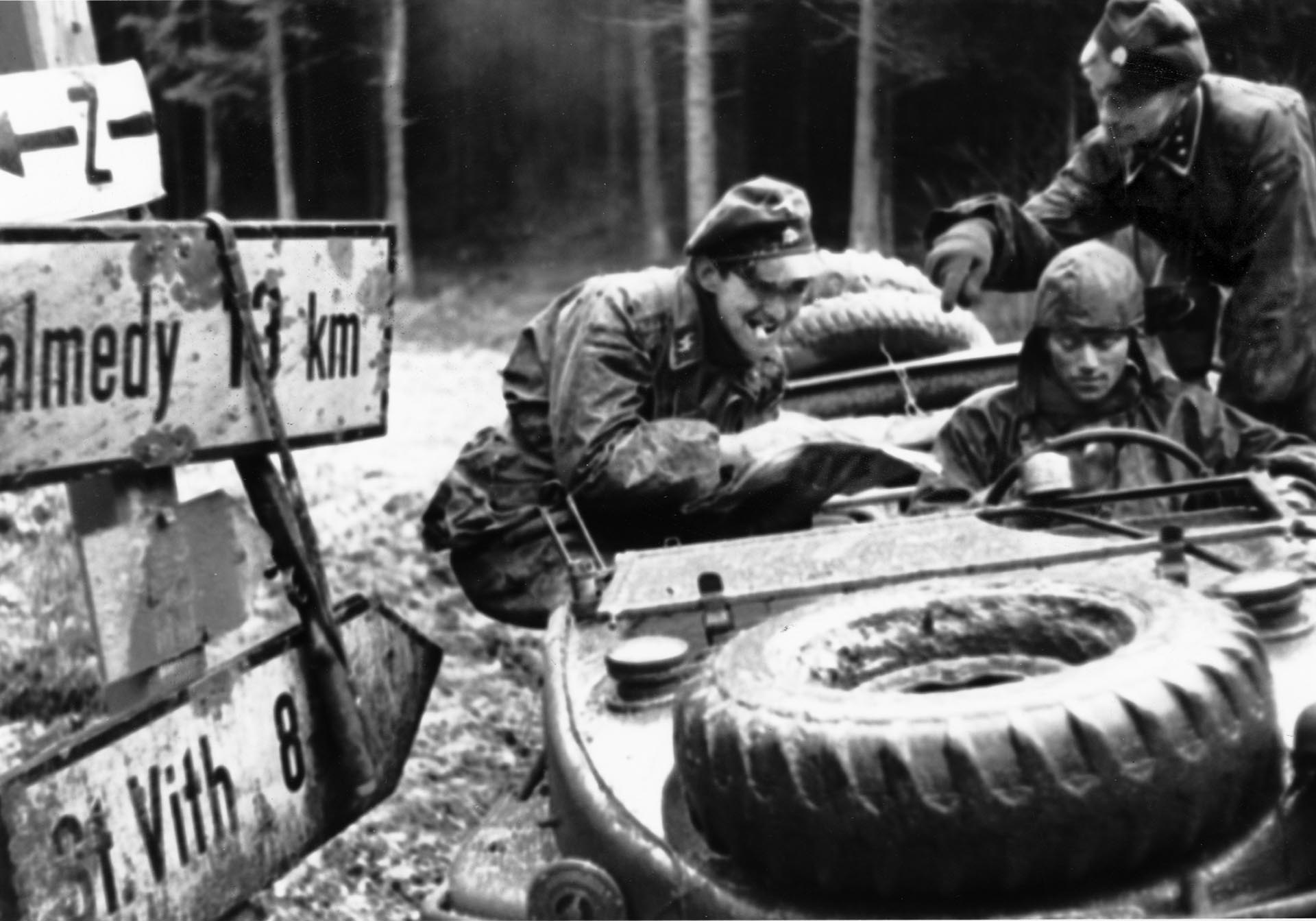
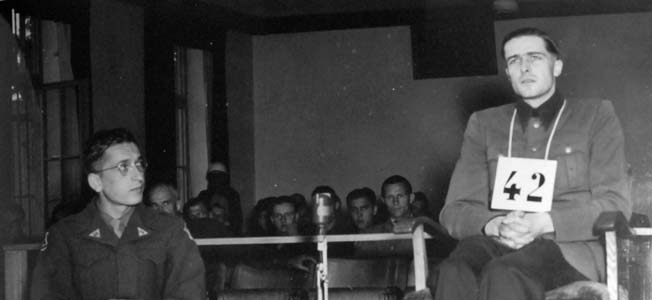
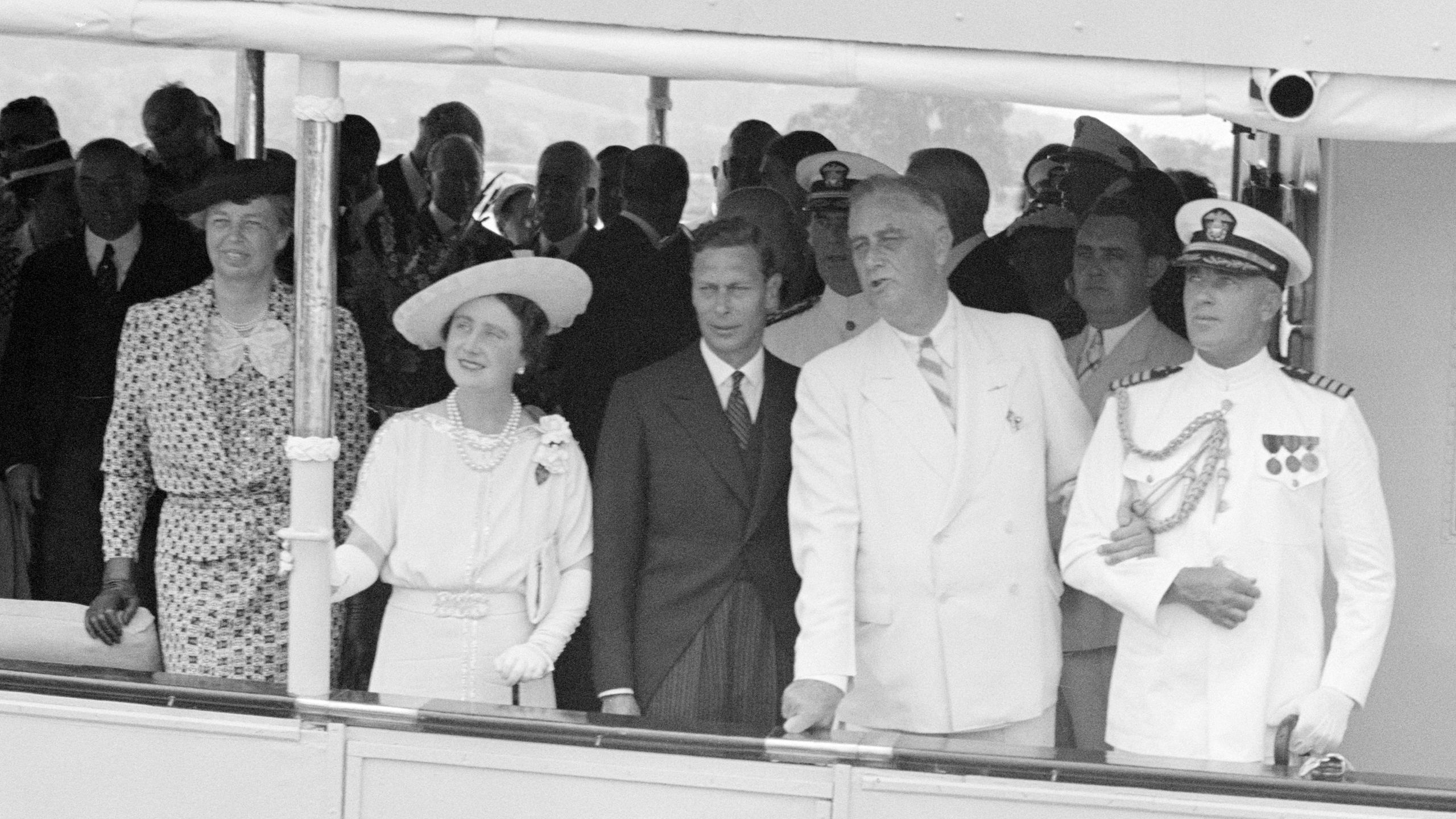

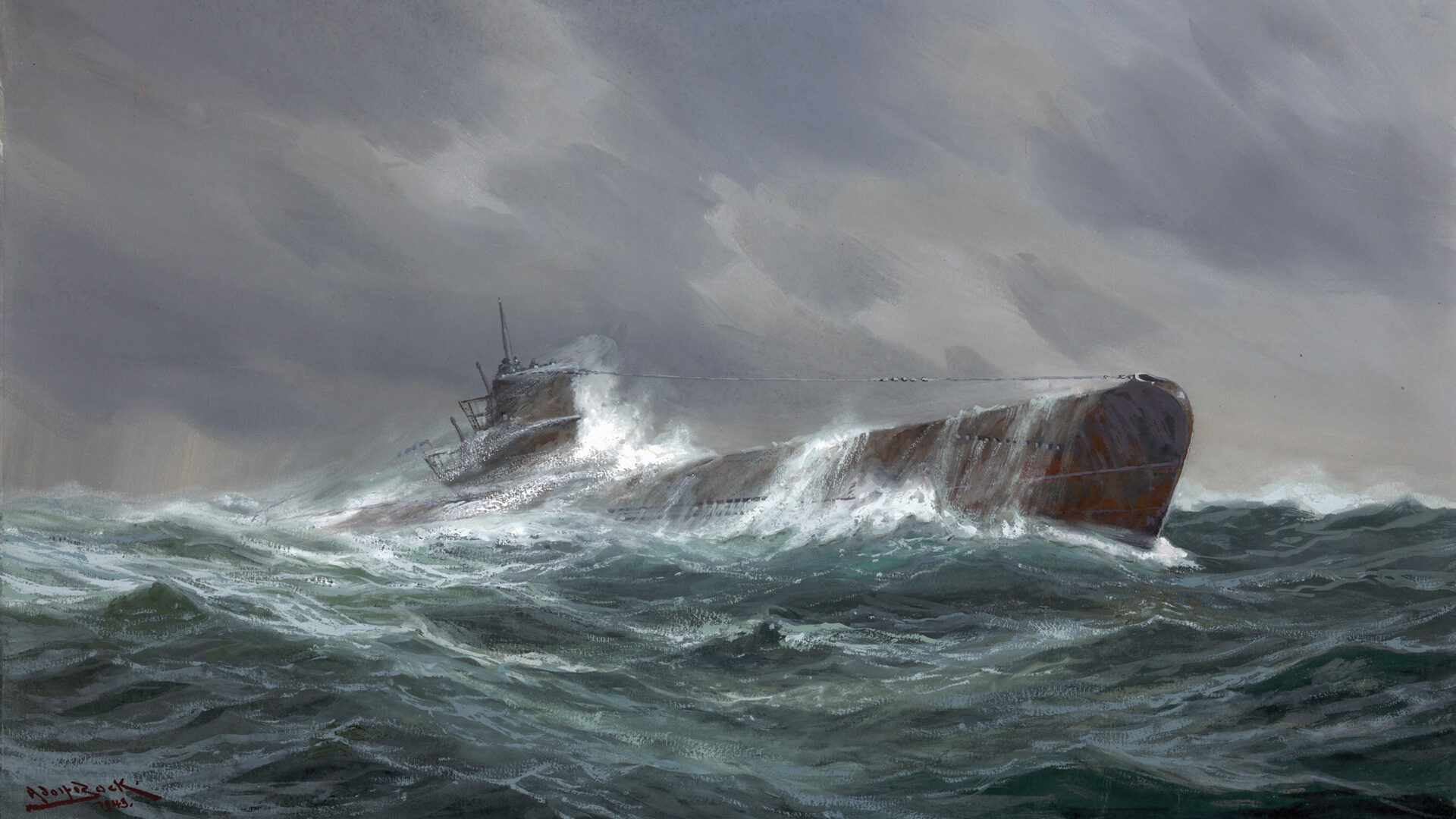
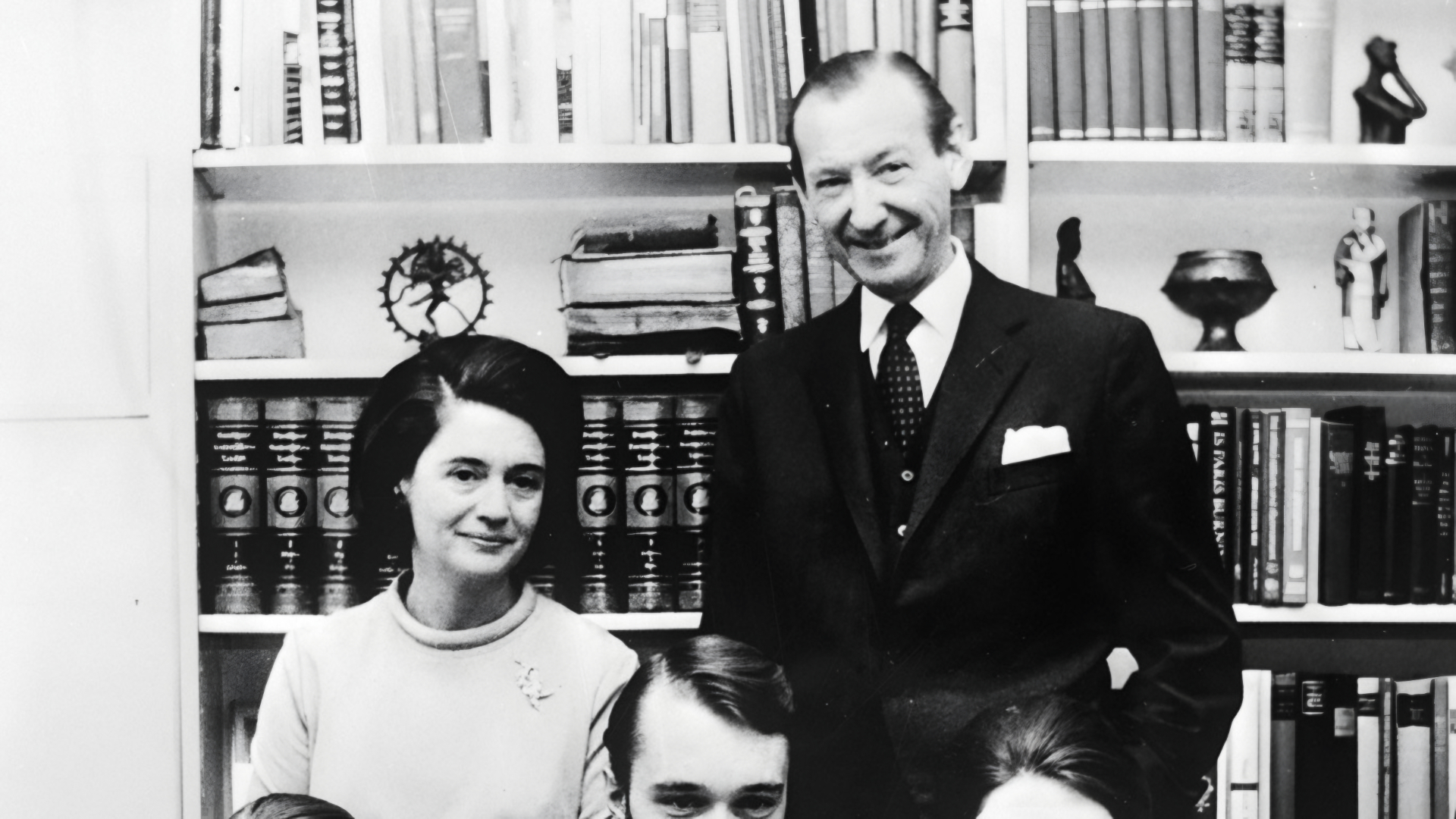
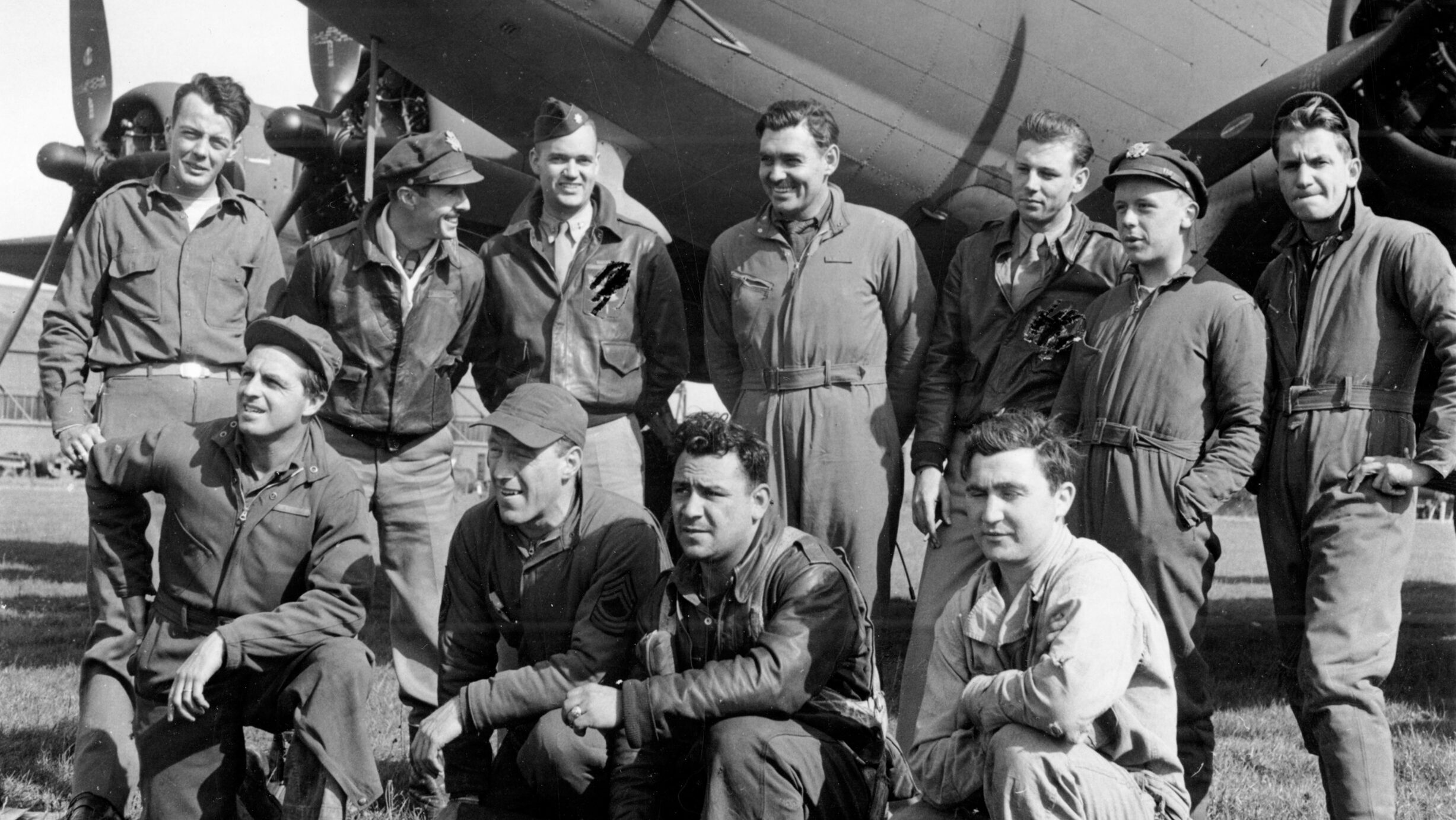
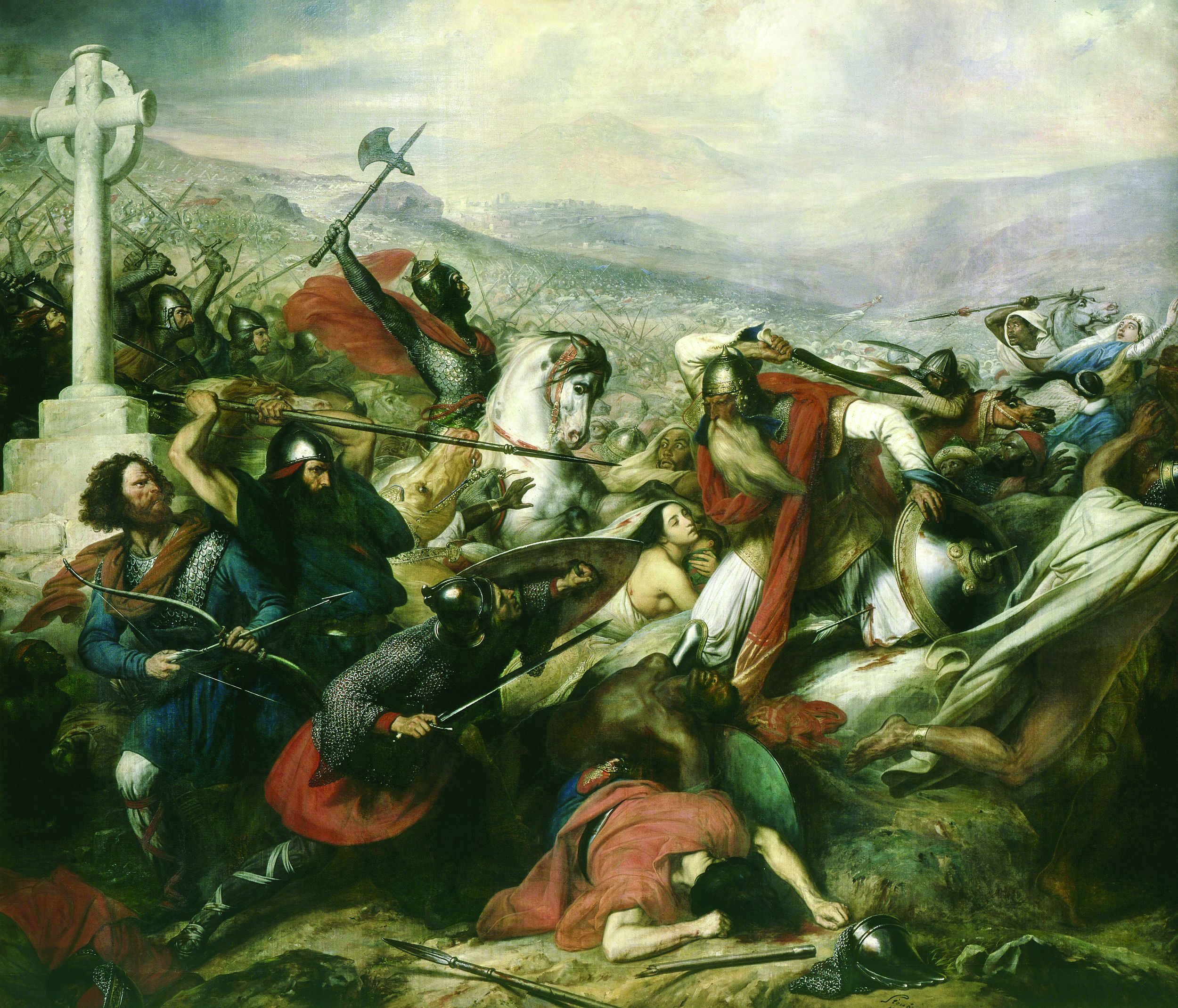
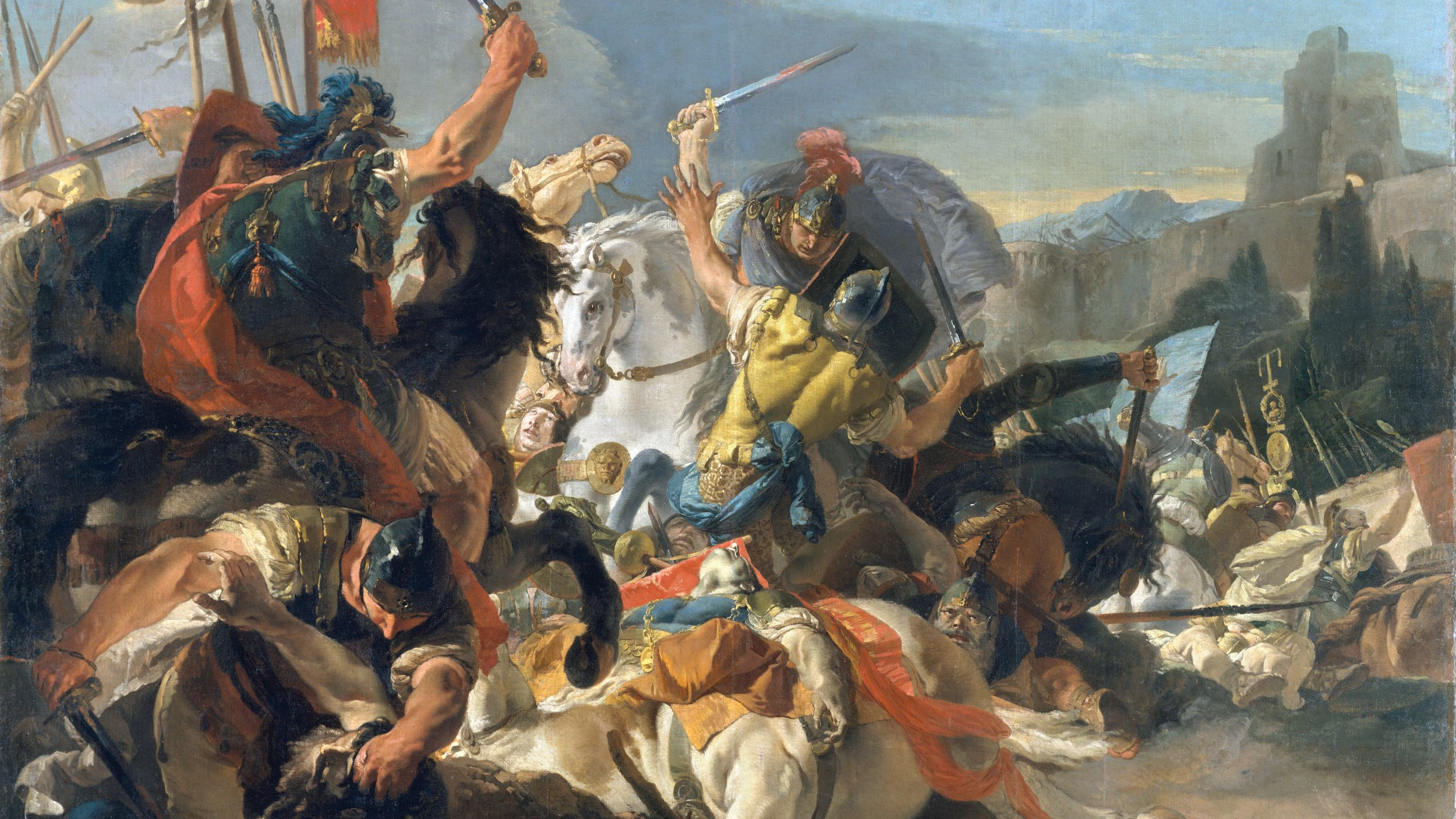
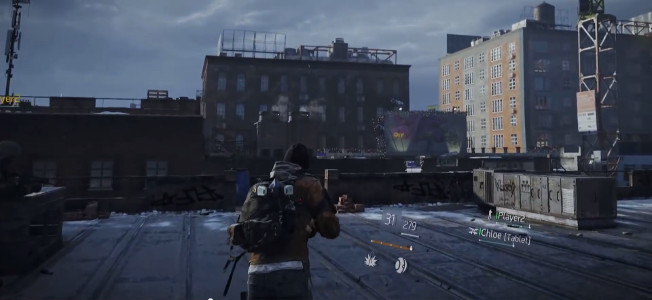
Why take the head?
I believe the only crime Peiper is guilty of is being a faithful NAZI Waffen SS officer many crimes were committed during the 2nd World War especially in the death camps and at the hands off Eienzasgruppen who were SS order police who committed a majority of the atrocities in the Eastern front who were real criminals who never spent a day in jail such as Joseph Mengele the waffen SS Doctor know as the angel of death there was nothing angelic about this Monster were more off an armed unit of the SS Did Pieper deserve to be murdered I will leave that to history
Joe Hernandez? Ask the families of the executed US prisoners if he was guilty of war crimes? He could have stopped it, but let it go on to avoid having to deal with prisoners. He let them be gunned down to keep his time schedule.
Peiper got what he deserved!
Not before time
There is no doubt that Pieper was a Nazi he was only 29 in the Battle of the Bulge so he went through the indoctrination all his life. However Just before the start of the battle Gen. Mantuffle (SP) gave orders to take no prisoners because it would slow them down. The order was given over the radio in the clear. Pieper’s response was if they know they will be killed no matter what we have already lost as they have nothing to lose.
Although men under his command were responsible for many war crimes he was not present. In fact there is a report that he did catch some Americans (over 100). He ordered them disarmed and let go, telling his men not to kill them.
I’m not saying that he was a nice guy and I don’t know what he did on the eastern front but he was let go for some reason and the above may be it. I’m old enough to have met 3 SS officers and a Nazi youth, I wanted to strangle them with in 30 seconds of talking with them, but Pieper may not have been guilty in the cases during the Battle of the Bulge. So maybe he was not deserving of what happened… just saying.
NO……a nazi is a murderer is a nazi is a murderer is a nazi is a murderer is a nazi is a murderer is a nazi is a murderer is a nazi is a murderer PERIOD!!!!!!!!!
Joachim Peiper should have been the first to hang at Nuremberg.
I guess Hitler was innocent since he wasn’t present when 6,000,000 Jews were murdered by his forces. Dah!!
This was a common theme on all sides involved in the war, but hey the “victors” wrote the history. Firebombing of German cities killing hundreds if thousands of civilians? Mmmmm…US and Britain.
Pieper was a war criminal who murdered American pows and in Russia was called the blowtorch by his company for setting fire to buildings and killing unarmed people and in the battle of the bulge did not hesitate to kill inosent people in the towns he occupied in Belgium
Firebombing of German cities came AFTER the Germans conducted saturation bombing of Warsaw, Rotterdam, London and Coventry. The death camps were operating at full capacity by 1940. ” Mmmmmm” on that a while. What history would you like to write for the extermination of entire populations in gas chambers ? mmmmm?
Just remember who started the war.
The firebombing of cities was started by Hitler. So stop whining.
Yeah… The victors write the history!
Well… Except for Gudarian, Doenitz, Westphal, Galland, Bayerlein, von Luck, von Manteuffel, Speer, Rudel and dozens more in the officer class and probably hundreds of personal memoirs of rank and file soldiers, sailors and airmen… Except for those, the victors write the history!
AS the Luftwaffe started bombing England at the beginning of the war, the British replied to Hitler that if they continued bombing, Britain would unleash a bombing campaign that would be far worse than anything the Germans could do and that it would not cease until the end of the war. That was a warning that the British carried out.
But the same day that the British and Americans started bombing Dresden, V2 rockets fell on London and suburbs, killing innocent civilians. V2 attacks ceased on March 28, 1945 when their last mobile launching site was overrun by Allied troops.
So don’t tell me you have some kind of moral superiority using the firebombing of innocent civilians.
Yep, war is hell and the Germans started that war. Firebombing a city to get the country to capitulate is certainly not the same as killing soldiers that were disarmed.
You’re aware that killing would-be prisoners to keep a schedule isn’t something just done by Germans?
I ran across an example recently in some Brit commando raid, and there are allegations of killing prisoners against the originasl US soldiers pictured in the Band of Brothers series. There’s a recent reality-based movie (Lone Survivor?) where not killing some herder gets everone likked, iirc… etc., etc. War is hell.
Every country commited war crimes, therefore it isn’t even relevant to bring it up!
I’m of German descent, a West Pointer and a highly decorated combat veteran from Vietnam. I think Peiper got what he deserved, however, I would have preferred to have seen him dangling with a noose around his neck!
Joe, you need to read grim accounts of the torturous murders he ordered. These were not expeditious or necessary in any sense. This man proudly tried to intimidate civilians and combatants with brutally ruthless tactics. Why would his troops be infamously known as the “Blowtorch Battalion” if their leader wasn’t sadistically barbaric?
He exceled as a Hitler youth and became a trusted guard to his Fuhrer as a youth. As Himler’s right hand he personally inspected many concentration camps. Yet he claimed above, “I was never a member of the Nazi party. I was a soldier.” He was a murderous unrepentant racist liar.
We can thank Senator Joseph McCarthy for sympathetically portraying Peiper as undeserving of further imprisonment. He succeeded in lobbying for his release after serving only 12 years of a life sentence. His commuted sentence was bitterly opposed by US veterans who considered him the worst of the war criminals.
Peiper was justifiably and deservedly murdered by the French he ridiculed as cowards on Bastille Day.
I agree
pieper was more than just a Waffen SS officer. He was complicit, tried, and sentenced for the death of 84 US POWs at Malmedy..
After reading about this band of butchers, I have a thought. According to history, only 800 of the original force made it out of the Battle of the Bulge. This was 800 too many.
@ Robert – Well said
Peiper deserved the death he received. He ordered the execution style shooting of 70+ American soldiers, unarmed and in his command, simply because they slowed his soldiers progress down. He deserved everything he got. He was a nasty, nasty human being.
Pieper got what all committed SS soldiers deserved. They took no prisoners. My Uncle PFC Casey Jones was captured early in the Ardennes assault. Fortunately, he was not captured by the SS. Casey was reported KIA because his squad was wiped out by artillery and all were presumed dead. My mom’s family held a service honoring his death. He was found in a small POW camp at war’s end and barely alive.
Joe Hernandez , you are kidding . You obviously have a very poor understanding of history .
Piper got what he deserved as all murdering Nazis should….
I think Peiper got what he deserved there is evidence that he at very least did nothing from stopping his troops from killing us soldiers at Malmedy. Also his Battilluon had a nick name Blow torch where I am sure they killed many helpless Civllians to spread fear. I just wish some Partisans or US Army forces could have caught him and his men red handed and given the the justice they deserved.
Peiper massacred at least 71 American POW’s . That is against all rule of war and being a soldier makes one more guilty .
One swears an oath to treat prisoners humanely.
Retired USA SSG
Hardly. He was in charge when his Battalion burnt two villages down and killed all the occupaants men, women and children. His Battalion was known as the Blowtoch Battalion after that
He faked his death
If the original sentence had been carried out there would be no need for this article. Atrocities were perpetrated by all combatants in all theaters of war from the beginning of time. The best outcome is to be the victor which places the winner in a position to carry out justice as they interpret it. The barbarity of war can not be regulated (as tried by the Geneva Convention), only judged in courts of law after the fact. Peiper was living on borrowed time. One can’t live the life of Peiper and not expect to pay retribution for one’s atrocities.
The victors control the narrative. The people of this day and age cannot fathom that actual citizens could be effected by such direct tyranny. But it has happened consistently throughout history. We build our idols, and tear them down. Americans are incarcerated in their own sphere of reference, and don’t realize, nor care too. Im American. To know the history of our nation, but at the same time know how young our republic really is. Upsizing a meal deal is far to important. And i hate it, i wish we could change. Only for history, and 2o years, the revised version. Are you kidding me? We are to busy fighting proxy wars , and we are stuck in a terminal state of cognitive dissonance.✌️?
That picture of the SS soldier reading a map in the Schwimmwagen on the left, is not Peiper.
While that German soldier has been identified by some sources as Peiper, most sources now recognize that it is not him.
Sooner or later, your bad deeds will come back to you. Some people call it karma, and karma is always a b**** Was it justice for all those who were murdered upon his orders? I don’t know, by his death was a horrible one, just like the deaths of those POWs he ordered to be executed. At least they died like soldiers, Peiper wasn’t so lucky as he died like a hounded criminal.
He was a coward,nothing more. He cowardly killed dozens of unarmed soldiers in Malmedy. Many of them tied up and at close range. Peiper should have hung
The bastard got what he deserved.
Should have been topped at the end of the war anyway
As a former combat officer in Vietnam and West Pointer, I must say Colonel Peiper got what he deserved !! Too bad it didn’t happen sooner. He literally got away with murder. His eventual doom wasn’t grotesque enough!
Any massacre is horrible, to kill unarmed people is cowardice.
Sir, as a combat officer you should be a little bit cautious. I am sure you saw many … things. What about My Lai, Sir? What about the execution of the SS German prisoners at Dachau on 29th of April by the US 45th Infantry Division? I was also an officer, fortunately never combatant, but I am afraid to think about the situations the savage of war could create. All the best.
Who could care less about the ss soldiers at Dachau. Seriously
The Japanese were no better ! War is Hell ! And it’s
Going on now in Russia !!
Col LeMay, who ordered the firebombing of Tokyo which killed far more “civilians” than both atomic bombs (Hiroshima & Nagasaki) COMBINED said afterward, “We better win this war, or we’ll be hanged as war criminals!” As Gen Sherman observed, “War is hell!” “There is no such thing as a good war or a bad peace.” Ben Franklin
lt. Colonel Pieper was a war criminal, as surely as any of the top Nazis at Nuremburg. The allies had plenty of atrocities attributed to them as well, so this was the gist of why Pieper was released after given a 35 year sentence after his death sentence was commuted. He served only 2 years after given the step down sentence, I agree that while macabre, his death was just an extension of his life. He did not give his victims at Malmedy any mercy, so the partisans who were responsible for his death only returned the favor. He had the opportunity to leave with his wife and return to Germany on the 12th of July, but like the arrogant Nazi he was he thought he could defend himself against anyone, and in the end justice was served. Power corrupts, and Absolute power corrupts absolutely.
After the war the west German court system was quite lenient with their sentencing of was criminals. The heads of industry such as I B Farben were given slaps on the wrists and many of the SS monsters in death camps got small sentences.
In war bad stuff always have and always will happen nazi japs were ruthless. But we (british) usa aren’t innocent by all means. But look what stalin done to his own people ie mainly hard working peasants he had millions killed thru starvation hangings shooting etc . Pieper followed orders and got what he deserved .why didnt stalin get his or the british n usa main people get there fair deserves. End off the day things like this will never stop war is war and leaders and governments will always be there to so say write the wrongs .
Being a Army Veteran what he did to those military Prisoners is inhumane, instead of treating them like prisoners under the Geneva Convention he murdered them in cold blood he is nothing more than a barbarian who got what he deserved.
They should have hanged Pipers on fish hooks for shooting down prisoners of war.
Hard to believe that an American General had paroled the NAZI.
He deserved his dying in his burning home and in French.
Once your beliefs are ingrained,especially at a young age,it’s pretty tough to dislodge them.”Once a Nazi always a Nazi”was the truth more than “I was not political”.One guy’s comment got it right.”Absolute power corrupts absolutely”..!!
Peiper was a faithful accolyte of Hitler and of Hitler’s ruthless war fighting dictums, which was precisely why he was chosen to be the point of the spear in the desperate drive to the Meuse River. It was understood that this Kampfgruppe, 1st SS Panzer Division Leibstandarte SS Adolf Hitler, would not be able to take prisoners in its rush to the west; It was assumed that Peiper and his men would have to kill any prisoners taken, and that is why this particular division was given the job…they were experienced butchers, veteran war criminals. Again…I repeat…this was the operational plan from the gitgo. Peiper’s men massacred civilians as well as GI’s in the Battle of the Bulge. This was also not an aberration. The reason given by the Nazi’s for murdering civilians, was that German speaking Belgians who had accommodated the Allies were traitors. Even that excuse doesn’t account for the murder of women and children. These brutal tactics were simply SOP for the Leibstandarte SS Adolf Hitler, and for its commander.
Some of the comments above are strikingly naive. Peiper was brought up in a system which valued courage, strength and ruthlessness, the last particularly important as the Waffen SS regularly fought against high odds. Granted, he was no saint, and probably had a greater knowledge of the death camps than he later claimed. But any study of his life, and in particular, the fighting on the Eastern Front, must point to the courage of the man. His brief in the Ardennes Offensive was to reach the Meuse. His units did take prisoners, but on occasion, executed some as well. Accounts of the Baugnez massacre are conflicting, but to class Peiper along with Mengele and Hoess, is ludicrous. Which victorious army was blameless in how it treated POW’s?. Atrocities take place in every war, that is the nature of it. He probably knew what was coming in 1976, but if he did die in the flames, and this has never been proved conclusively, he stood his ground like the soldier he was. As a youngster who grew up in 30’s Germany, he was a product of his times, and did not deserve to die like that.
Of course he deserved it. Play on the tracks, get hit by the train……
I agree with Jim. Peiper lived by the sword…and as so often is the case, he later died by the sword (flaming in this case – metaphorically speaking).
Only God knows. Peiper’s column was many miles long and he wasn’t near the massacre when it took place. I believe he stated at his trial that while he didn’t and wouldn’t have given the order to kill the POWs, he took full responsibility for the actions of his troops. However it was also said that his troops were very disciplined and would never have killed them without his implicit direction/knowledge. Personally, I think he was guilty. The most interesting part of Peiper’s drive was the Battle of Lanzerath Ridge when only 18 US soldiers delayed Peiper’s entire division by almost a full day. This had repercussions that changed the course of the war and ultimately led to Peiper’s failure
My father was an american army man under Patton. You should know that many German prisoners were shot before and after Malmedy. It was not uncommon. Prisoners – like wounded – were a major impediment. My dad told me all morality disappears in combat. What he saw and did haunted him until his death in 1980.
Aside from Peiper being a bastard Nazi liar, I’m rather perturbed that Ferry Porsche would hire this Nazi war criminal and further, want him as part of his management team. It’s no wonder that when you visit the Porsche museum – you see zero information concerning the use of slave labor by Porsche during the war. The Porsche group managed production of military vehicles in the Wolfsburg VW plant. In fact it was Anton Piëch the floor production manager whom ran the VW plant with slaves. Anton Piëch was Ferry Porsche’s nephew.
Even the Mercedes and VW museums have displays concerning their horrific use of slave labor and post war, both firms paid money to survivors and their estates. But not Porsche. Not one red cent. In fact Anton Piëch took off for Austria with $10M RM ($1.4M US today) after the 8th Airforce wiped out half the plant. Head for the hills went the thieving little Anton…
Before the war Professor Porsche was an ardent Hitler supporter (factual) and many say this is a moot point because he did it only for financial gain. History is filled with men whom did terrible things for money – this is not an excuse.
Professor Porsche and his son were responsible for designing the Tiger tank, the Elephant (tank destroyer) among other weapons. My argument that both were war criminals isn’t about armament designing but that Ferry was listed as ‘VW plant Supervisor’ with his cousin the production manager. That they found nothing wrong with employing a mass murder like Peiper is not surprising I guess – just disappointing as a fan and owner of Porsche cars.
Professor Porsche and his son spent a few years in prison when lured there by the French concerning a deal to run a Peugeot plant. Greed got the better of them and they were arrested. They got out eventually by paying a fine, (typically French). Professor Porsche died two years later and his family said the jailing shortened his life span. Too bad/so sad. Ferry lived into the early 90’s.
Peiper deserved what he got – although very delayed. He managed to have children that 71 US soldiers never had the chance to do. Rest in hell Peiper.
On this subject, one might want to look up Joachim Peiper on Wikipedia. Especially take note of the section on, “Facist Politics.” Heinrich Himmler, was the head of the “Waffen SS,” and developer of “The Final Solution.” Peiper was the personal adjutant to Himmler. There can be little doubt that Peiper was not aware of killing of Jews in France, Poland and on the Eastern Front and the methods to do so. Peiper was a standout of arrogance and egotism that so readily adopted by the Nazi’s. Two things come to mind. First, that the apple does not fall far from the tree. Second, Peiper would have been fully immersed in this crazed culture for decades (as a member of the Hitler Youth organization). Nazi’s were murderers without conscience.
Be serious folks, even if he was not personally present at Malmady, it is incomprehensible to think that officers present did not have the tacit approval of Peiper to conduct the killings and may committed similar atrocities in the past. At bare minimum, there is in law the concept of principal/agency relationship. That is, the principal is responsible for the agents actions. Peiper was also the subject of Italian atrocity accusations.
Yes, circumstantial evidence speaks. and especially when Peiper’s personal adjutant testified against him. While I do not condone vigilantism, my opine is that he should have at minimum been sentenced to life in prison without the possibility of parole……
Well I always rely on Wikipedia for my research. Always so accurate! Seriously? Pathetic source.
Piper’s column ran out of fuel. The American commander in that region entertained Piper over a table laid out with cigars and bourbon. After an evening of conversation with Piper, the American commander allowed Piper and his remaining contingent of men to walk back to German lines. That’s the difference between the American commander and Piper, as the American commandeer had no accomodations for 800 plus POWs, so rather than execute the German prisoners, he let them go. Piper could have done the same thing at Malady, but he had delegated his authority out ty his subordinates and they ultimately carried out the massacre.
I dare say that many German war criminals who escaped justice did not sleep well after Pieper.
Retired officer here. Wonder why Peiper’s death sentence wasn’t carried out after the trial. As it was, karma eventually caught up with him. And from what I have read of Peiper’s life simply don’t believe his claims of not being a Nazi.
For those commenting who did not serve during war time, it’s called command responsibility and you can Google it for a complete explanation of the term. Peiper was treated more appropriately than MacArthur treated Yamashita in the Philippines who genuinely tried to stop the murders in Manila but was executed anyway. During the Vietnam war, all of us received a two hour block of training by a JAG officer on the rules of war.
Did he die in the fire? Don’t think so based on the story printed here. Why wasn’t his burned body teeth compared to teeth on file, scars from his various war wounds at the time of his death? Yes he deserved to die, he should have died in 1945 or 1946!